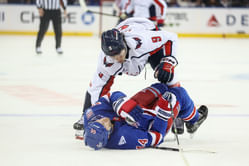
In the realm of ice hockey, an official plays a crucial role in upholding rules and ensuring order on the rink. These on-ice officials are visibly present during the game, typically donned in uniforms featuring black and white vertical stripes. Within the National Hockey League (NHL), each game is overseen by four on-ice officials—two referees and two linesmen. Referees can be identified by their distinctive red or orange armbands.
Referees bear the responsibility of overseeing the overall conduct of the game, making penalty assessments, and orchestrating face-offs at the commencement of each period and following a goal. In instances where play is halted for various reasons, it falls upon the linesmen to conduct the face-offs. Linesmen primarily handle infractions related to the center line and blue lines, including violations like icing and offside.
All on-ice officials in the NHL are affiliated with the National Hockey League Officials Association (NHLOA), a labor union established in 1969. The NHLOA serves as the representative body for its members, advocating for their working conditions and functioning as their collective bargaining agent.
How Much Do NHL Refs Get Paid?
Navigating the demanding world of NHL officiating comes with significant financial rewards, especially for seasoned referees who have honed their skills over the years. The current collective bargaining agreement sheds light on the compensation structure for NHL referees and linesmen, emphasizing the influence of seniority and performance on their salaries.
The NHL currently boasts a roster of 35 full-time referees and 34 full-time linesmen, each assigned specific responsibilities during the regular season. Referees are expected to officiate a minimum of 73 out of 82 regular-season games, while linesmen must work at least 74 games. Salaries for officials are intricately tied to years of service, with referees' pay scale ranging from one to 16 years or more, and linesmen's pay scale extending up to 20+ years.
As per the current agreement, referees can earn anywhere from $220,602 (Year 1) to an impressive $482,226 (16+ years) for both preseason and regular-season games. Meanwhile, linesmen earn between $141,291 (Year 1) and $292,027 (20+ years). The compensation structure is not confined to the regular season, as 20 referees and 20 linesmen are selected to officiate in the playoffs, earning additional compensation per round—$27,000 for referees and $17,250 for linesmen.
Acknowledging the longest-tenured and highest-paid officials in the NHL, notable figures like Kevin Pollock, Marc Joannette, and Kelly Sutherland have accumulated substantial salaries, exceeding $482,226. It's noteworthy that NHL officials' salaries have seen substantial growth over the years, with the pay range during the 2012-13 season standing between $112,187 and $353,649, as per the 2010-14 CBA.
In addition to game-related compensation, officials receive a retirement bonus based on the number of playoff games worked throughout their careers, further adding to the financial incentives.
FAQ's On NHL Referee Salary
A. NHL referee salaries are based on seniority and performance. Compensation varies for referees and linesmen and is determined by years of service.
A. The NHL currently has 35 full-time referees and 34 full-time linesmen. Referees are expected to work at least 73 regular-season games, while linesmen must work 74 games.
A. Referees can earn between $220,602 (Year 1) to $482,226 (16+ years) for preseason and the regular season. Linesmen make between $141,291 (Year 1) and $292,027 (20+ years).
A. Officials selected for the playoffs can earn additional compensation per round. Referees make $27,000, and linesmen make $17,250 per round.
A. The top officials, earning $482,226 or more, include Kevin Pollock, Marc Joannette, Kelly Sutherland, Eric Furlatt, Dan O’Rourke, Ian Walsh, Chris Rooney, Chris Lee, Wes McCauley, and Gord Dwyer.
![[FIGHT]: Ryan Lomberg and Tyler Tucker trade fists in heavyweight showdown](https://staticg.sportskeeda.com/editor/2025/10/27306600-1760253996.jpeg?h=166)








